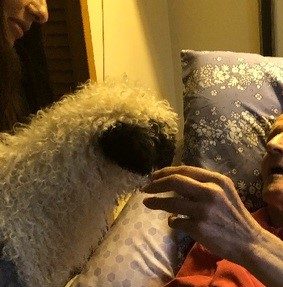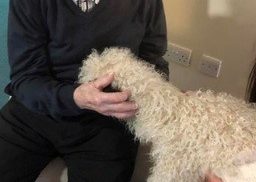There have been several recent news items featuring small lambs visiting nursing homes in Scotland and this was brought to the attention of SCAS. There is now irrefutable scientific evidence that human-animal interactions can be beneficial which has led to the introduction of many Animal Assisted Intervention (AAI) programmes in health care facilities. However, great care is required in planning AAI to help ensure that this does not put animals or people at risk.
The animals selected for this work must be screened for health, temperament and behaviour. Certain species are unsuitable for interacting with some client groups. For immunocompromised groups, such as nursing home residents, farm animals pose a higher zoonotic risk. The risk is higher with young animals, especially lambs. Hand washing is not sufficient to prevent zoonotic transfer.
The risk is higher still if farm species are taken indoors to living quarters. Farm species can be asymptomatic carriers of diverse pathogens which can cause very serious illness in older people, young children and others who are immunocompromised.
The pathogens carried by farm animals are associated with much more serious illnesses than those that can be acquired from companion animals. We contacted nursing homes featured in the reports and they appeared to have been unaware of the risks.

When working with immunocompromised residents, such as in a nursing home, only those species posing a low risk of zoonotic infection should be considered. Species most suitable for visiting nursing homes include visiting dogs from accredited programmes such as Pets as Therapy and Therapet; tropical aquaria with community fish; and resident cats.

SCAS actively encourages health and social care facilities to introduce carefully planned animal assisted interventions involving both resident and visiting animals. Multidisciplinary planning is one of the key elements. We recently conducted extensive research in updating the SCAS Code of Practice in AAI which provides guidance. The update was required in light of new scientific evidence pertaining to zoonoses and also to animal welfare. Please share the SCAS Code with colleagues in health, education and social care facilities.
